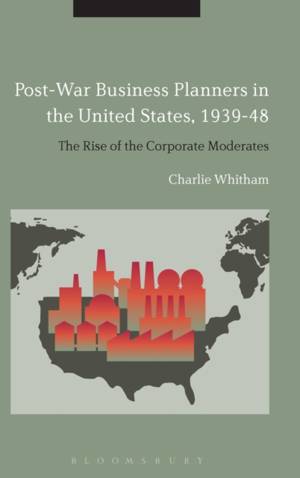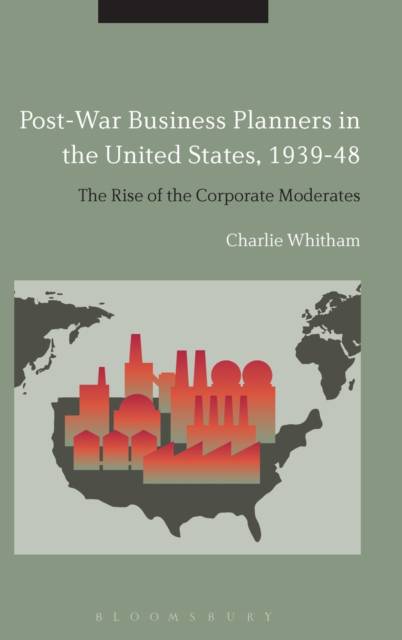
Je cadeautjes zeker op tijd in huis hebben voor de feestdagen? Kom langs in onze winkels en vind het perfecte geschenk!
- Afhalen na 1 uur in een winkel met voorraad
- Gratis thuislevering in België vanaf € 30
- Ruim aanbod met 7 miljoen producten
Je cadeautjes zeker op tijd in huis hebben voor de feestdagen? Kom langs in onze winkels en vind het perfecte geschenk!
- Afhalen na 1 uur in een winkel met voorraad
- Gratis thuislevering in België vanaf € 30
- Ruim aanbod met 7 miljoen producten
Zoeken
Post-War Business Planners in the United States, 1939-48
The Rise of the Corporate Moderates
Charlie Whitham
Hardcover | Engels
€ 296,95
+ 593 punten
Uitvoering
Omschrijving
During the Second World War several independent business organizations in the US devoted considerable energy to formulating and advocating social and economic policy options for the US government for implementation after the war. This 'planning community' of far-sighted businessmen joined with academics and government officials in a nationwide endeavor to ensure that the colossal levels of productivity achieved by the US during wartime continued into the peace. At its core this effort was part of a wider struggle between liberals, moderates and conservatives over determining the economic and social responsibilities of government in the new post-war order.
In this book, Charlie Whitham draws on an abundance of unpublished primary material from private and public archives that includes the minutes, memoranda, policy statements and research studies of the major post-war business planning organisations on a wide range of topics including monetary policy, demobilization, labor policy, international trade and foreign affairs. This is the untold story of how the post-war business planners - of all hues - helped shape the 'moderate' consensus which prevailed after 1945 over a permanent but limited government responsibility for fiscal, welfare and labor affairs, advanced American interests overseas and established.
In this book, Charlie Whitham draws on an abundance of unpublished primary material from private and public archives that includes the minutes, memoranda, policy statements and research studies of the major post-war business planning organisations on a wide range of topics including monetary policy, demobilization, labor policy, international trade and foreign affairs. This is the untold story of how the post-war business planners - of all hues - helped shape the 'moderate' consensus which prevailed after 1945 over a permanent but limited government responsibility for fiscal, welfare and labor affairs, advanced American interests overseas and established.
Specificaties
Betrokkenen
- Auteur(s):
- Uitgeverij:
Inhoud
- Aantal bladzijden:
- 304
- Taal:
- Engels
Eigenschappen
- Productcode (EAN):
- 9781472511720
- Verschijningsdatum:
- 20/10/2016
- Uitvoering:
- Hardcover
- Formaat:
- Genaaid
- Afmetingen:
- 150 mm x 234 mm
- Gewicht:
- 476 g

Alleen bij Standaard Boekhandel
+ 593 punten op je klantenkaart van Standaard Boekhandel
Beoordelingen
We publiceren alleen reviews die voldoen aan de voorwaarden voor reviews. Bekijk onze voorwaarden voor reviews.









